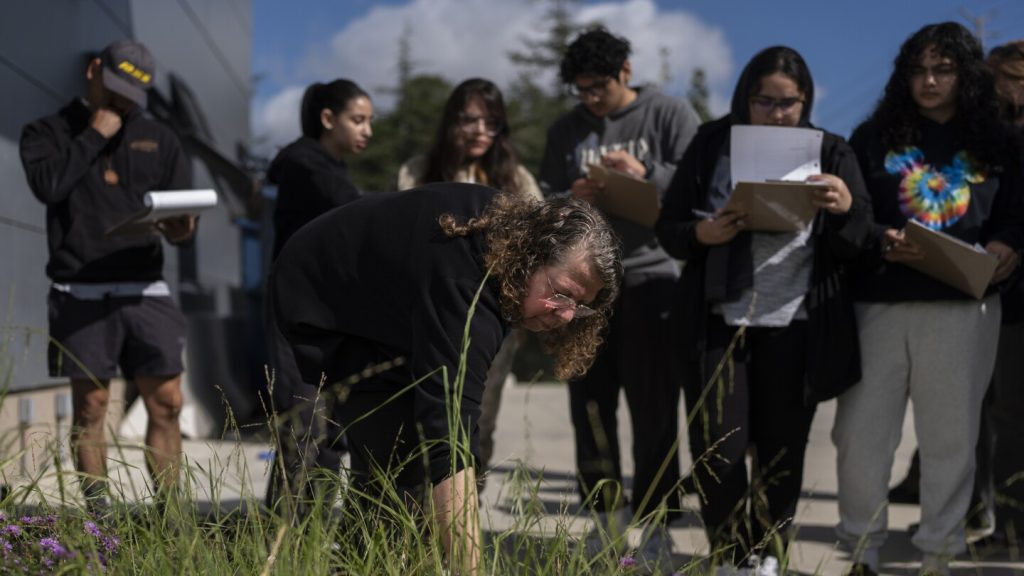Community colleges across the United States are stepping up to provide students with the training needed for jobs in climate solutions. From electric vehicles to wind and solar energy, these colleges are offering hands-on programs to prepare students for careers in industries focused on combating climate change. The demand for clean energy workers is on the rise, and legislation like the 2022 Inflation Reduction Act is driving more investment in this sector, creating an abundance of job opportunities for graduates. Students like Kyle Johnson are choosing to enroll in programs at community colleges like Olive-Harvey College in Chicago to stay relevant in an increasingly electric vehicle-focused job market.
Instructors at community colleges are witnessing a surge in demand for skilled workers in the clean energy industry. Programs like those at Roxbury Community College in Boston are seeing an uptick in student employment opportunities while still in the program, as companies are eager to hire graduates with the necessary skills for clean energy trades. With over half of these jobs expected to require less than a bachelor’s degree, community colleges are proving to be a prime space for hands-on training and academic education tailored to meet the needs of local industries. By collaborating with regional companies and economic development departments, these colleges are quickly adapting their programs to equip students with the skills needed for emerging job markets.
The shift towards clean energy is attracting students like Tannar Pouilliard, who initially planned to pursue a career in automotive technology but found an interest in wind energy technician courses at Danville Area Community College. These programs are providing students with a broader range of job opportunities in industries like wind, solar, energy efficiency, and climate resilience. However, community colleges are facing challenges in maintaining enrollment numbers, as more people are entering the workforce directly from high school. Investing in programs focused on clean energy and climate solutions is seen as a way to attract students and stay relevant in a rapidly changing job market.
Some community colleges are adapting their curriculum to incorporate climate change education without the need for costly new tools and specialized instructors. Schools like Inver Hills Community College in Minnesota are offering climate change certificates by pulling from existing areas of study, while Cape Cod Community College has shifted to a broader sustainable energy certificate open to students across disciplines. Others, like West Los Angeles College, are expanding their climate offerings to attract students interested in pursuing careers related to environmental science and sustainability. These programs aim to help students like Sarah Solis, who transferred to a four-year university after earning a climate change degree at her community college, succeed in careers focused on adapting to a warming future.
The success stories of students like Solis underscore the transformative impact that community college programs focused on climate solutions can have on individuals’ careers and their contributions to combating climate change. By offering hands-on training in emerging industries like renewable energy and climate resilience, these colleges are preparing a new generation of workers to meet the growing demand for clean energy solutions. As the job market continues to evolve and industries shift towards sustainability, community colleges play a crucial role in providing students with the skills and knowledge needed to thrive in a changing economy. The investment in clean energy education and training at these institutions is not only benefiting individual students but also contributing to the broader effort to address climate change and promote environmental sustainability.


